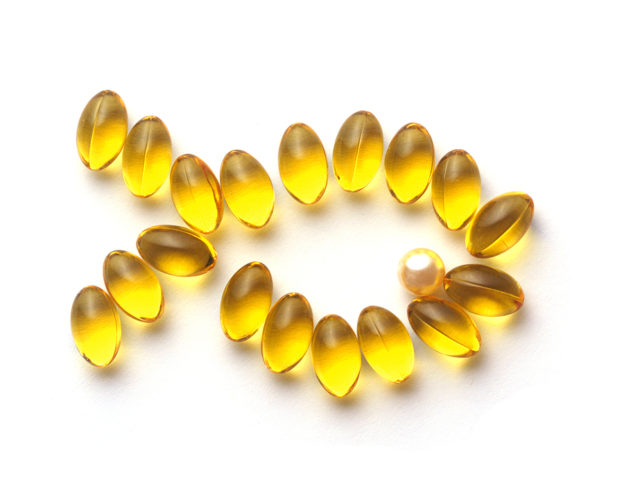By David Blyweiss, M.D., Advanced Natural Wellness
August 7, 2020
Years ago, I had an elderly southern woman as a patient. One of her favorite expressions was “I’m madder than a wet hen.”
Well lately, I’ve also been feeling “madder than a wet hen!”
Want to know why?
I get angry when pharmaceutical companies make wild claims that rob hard working folks of their money. Let me explain…
Recently, the American Heart Association put out several press releases that made headline news. They claimed that 4g daily of prescription omega-3 fatty acids can lower triglycerides by 20% to 30% in most people.
Ok, sure. No problem.
They also took this opportunity to take several unnecessary jabs at traditional, over-the-counter (OTC) omega-3 supplements.
It seems they are spreading the message that affordable OTC supplements are trash and expensive prescriptions are the only ones that work. And this is simply not true!
Here are some specific statements from the report:
“Prescription omega-3 fatty acid medication can lower high triglyceride levels, but people should avoid unregulated supplements…”
MD Exposes the Hidden Danger to Your Eyes

When your eyesight starts to fail, it's a real problem. Suddenly you can't go to the grocery store... you can't get to the doctor if you have an emergency... you can't meet your friends for dinner…
Your "regular" doctor doesn't have time to keep up with the latest research. And the same goes for eye doctors. They go to school to learn how to fit you for glasses and contacts, but have no way of preventing the damage and loss of eyesight that threatens your freedom and independence.
Let me show you something that explains a LOT about how your eyes work.
In my FREE Special Report, I'll show you a HUGE, untapped resource for your eyes that safely and naturally restores clear, effortless eyesight.
Click here to get started...
“… the AHA noted a lack of scientific research to support use of omega-3 fatty acid supplements to prevent the development of heart disease in the general population.”
“Dietary supplements containing omega-3 fatty acids… should not be used in place of prescription medication for the long-term management of high triglycerides.”
After reading this, you may be wondering if you should toss your omega-3 fish or krill oil away. I don’t blame you. The statements are very misleading.
But before you go to your doc and request an expensive prescription, let’s clear up a few things.
There are two prescription omega-3 fatty acid medications available. One of them contains both EPA (eicosapentaenoic acid) and DHA (docosahexaenoic acid). The other contains only EPA.
As you may have noticed, DHA and EPA are the same two main ingredients in your regular OTC omega-3 supplements.
So, what makes the prescription version better?
There’s the rub. Nothing. Nothing at all. It’s only better for the pharmaceutical company.
You see, there are a number of studies that show how OTC omega-3 fatty acid supplements DO lower triglycerides. For example:
| Year | Journal | Daily Dose & Omega 3 Type | Reduction in Triglycerides |
| 1992 | Canadian Journal of Cardiology | 4.5g EPA/DHA | -39% |
| 2000 | Arteriosclerosis, Thrombosis, and Vascular Biology | 3.0g DHA | -25% |
| 2002 | British Journal of Nutrition | 3.0g EPA/DHA | -33% |
| 2005 | The Journal of the American College of Nutrition | 1.5g DHA | -21% |
| 2007 | American Journal of Clinical Nutrition | 3.0g EPA/DHA | -35% |
As far as I can tell, none of the trials for those fancy prescription omega-3s have ever gone head-to-head against those sold in supplement form. Until that happens in an unbiased and well-controlled study, the whole thing is a moot point.
So what’s the reason why people are being told the cheap versions are trash and the expensive versions are better?
As TV Detectives always say… Follow the Money
Yes… it all comes down to cold hard cash.
Big Pharma companies don’t have your good health in mind. Instead, they’re looking for your money.
The World's Quickest Solution for Ending Prostate and Urinary Misery
This has recently been revealed to be one of the only real breakthroughs in prostate health.
The seeds of a strange fruit (sometimes called "Chinese Apples") hold powerful phytonutrients that are a revolution in prostate health.
In fact, UCLA and Veterans Administration research have now proved this to be true.
Not only that, but it may be the worlds quickest solution for ending prostate misery.
Simply stated, these phytonutrients represent a huge step beyond beta sitosterol, saw palmetto, and other phytosterols alone.
Simply click HERE if you want to have fast prostate relief...restful, uninterrupted sleep...no more constant "urges to go"...enhanced virility...and optimal prostate support for life.
And these prescription omega-3s cost a bundle. Just one month’s supply is estimated to run over $200.
How do they get away with it?
Well, once a product achieves prescription drug status, the drug company can make health claims about it. In this case, the FDA has approved these fishy drugs for the reduction of triglycerides, or “hypertriglyceridemia.”
Plus, the makers of the products can now claim they are “pharmaceutical grade.” And they like to point out that OTC omega-3s aren’t regulated by the FDA.
They make the prescription version sound like a better product even though they offer no actual proof.
Are you as outraged as me yet?
And let’s not forget the marketing propaganda and aggressive sales tactics Big Pharma uses to get doctors to prescribe their products.
It’s a gold mine!
But none of this means regular omega-3 supplements don’t perform just as well.
You see, the FDA classifies OTC supplements as “foods”. Thus, they cannot be granted health claims from the FDA – even though many supplements work as well (or better!) than overpriced pharmaceuticals.
I’d also like to defend the supplement industry. Honest and reputable supplement makers use ingredients of the finest quality and purity. And they only trust the production of their products to pharmaceutical grade, FDA approved and GMP certified facilities, keeping raw materials in quarantine until they have been independently lab tested.
Not only that, but there is overwhelming evidence that OTC omega-3 supplements provide a plethora of health benefits beyond their ability to lower triglycerides.
They have been proven to…
- Lengthen your telomeres in as little as four months.
- Lower inflammatory markers by 10 to 12 percent in the same time period.
- Reduce blood pressure and slow the buildup of plaque in your arteries.
- Drastically cut your chances of a heart attack or sudden cardiac death.
- Slash your risk of dementia in half, and reduce Alzheimer’s risk by about 40%.
- Improve your joint pain just as well as non-steroidal anti-inflammatory drugs (NSAIDS.)
SOURCES:
Prescription omega-3 medications work for high triglycerides, advisory says. Press Release. American Heart Association. Aug 2019.
Prescription omega-3 fatty acid medications effectively lower high triglycerides. Press Release. American Heart Association. Aug 2019.
Bairati I, et al. Effects of a fish oil supplement on blood pressure and serum lipids in patients treated for coronary artery disease. Can J Cardiol. 1992 Jan-Feb;8(1):41-6.
Minihane AM, et al. ApoE polymorphism and fish oil supplementation in subjects with an atherogenic lipoprotein phenotype. Arterioscler Thromb Vasc Biol. 2000 Aug;20(8):1990-7.
Leigh-Firbank EC, et al. Eicosapentaenoic acid and docosahexaenoic acid from fish oils: differential associations with lipid responses. Br J Nutr. 2002 May;87(5):435-45.
Maki KC, et al. Lipid responses to a dietary docosahexaenoic acid supplement in men and women with below average levels of high density lipoprotein cholesterol. J Am Coll Nutr. 2005 Jun;24(3):189-99.
Kelley DS, et al. Docosahexaenoic acid supplementation improves fasting and postprandial lipid profiles in hypertriglyceridemic men. Am J Clin Nutr. 2007 Aug;86(2):324-33.
Ito MK. A Comparative Overview of Prescription Omega-3 Fatty Acid Products. P T. 2015;40(12): 826-836, 857.
Kiecolt-Glaser JK, et al. Omega-3 fatty acids, oxidative stress, and leukocyte telomere length: A randomized controlled trial. Brain Behav Immun. 2012 Sep 23. pii: S0889-1591(12)00431-X.
Saremi A, et al. The utility of omega-3 fatty acids in cardiovascular disease. Am J Ther. 2009 Sep-Oct;16(5):421-36.
Huang TL, et al. Benefits of fatty fish on dementia risk are stronger for those without APOE epsilon4. Neurology. 2005 Nov 8;65(9):1409-14.
Johnson EJ, et al. Potential role of dietary n-3 fatty acids in the prevention of dementia and macular degeneration. Am J Clin Nutr. 2006 Jun;83(6 Suppl):1494S-1498S.
Maroon JC, et al. Omega-3 fatty acids (fish oil) as an anti-inflammatory: an alternative to nonsteroidal anti-inflammatory drugs for discogenic pain. Surg Neurol. 2006 Apr;65(4):326-31.
L. Knott, et al. Regulation of osteoarthritis by omega-3 (n-3) polyunsaturated fatty acids in a naturally occurring model of disease. Osteoarthritis and Cartilage, 2011; 19 (9).







